The Checker Maven
Jump to navigationCheckers Are Red: A Beacon Cafe Story
Sal Westerman, the unofficial leader of the Bismarck, North Dakota's Coffee and Cake Checker Club couldn't believe his eyes.
It was a cold Saturday afternoon in February, 1955, and his club's weekly meeting was about to start. His little group got together at 1 PM each week at the Beacon Cafe in the Provident Life Building on Rosser Avenue, from just after Labor Day to just before Memorial Day. The club members, or "boys" as Sal called them, were almost all over 50 years of age and enjoyed solving problems, playing skittles, talking checkers, and sampling fabulous baked treats homemade by the Cafe's proprietress, Deana Nagel.
Sal had just made the 10 minute walk from his home to the Cafe. He was cold and anxious to go into the warmth of the Cafe, but what did he see?
A picket line!
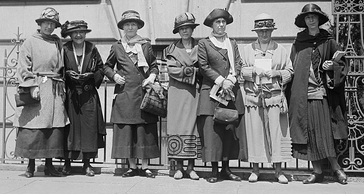
About half a dozen middle aged protesters were marching back and forth in front of the Cafe, holding signs lettered with the folllowing messages.
"Checkers --- the Game of Communists!"
"Think of the Children --- Ban Checkers Now!"
"Checkers --- The Ruin of the American Way!"
"National Service, not Checkers!"
"Patriots Don't Play Checkers!"
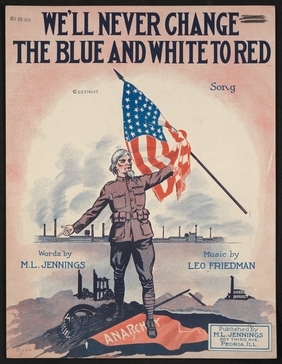
Sal, bewildered, approached the front door of the Cafe, but several of the protesters bumped into the old gentleman and nearly sent him sprawling.
Deana, inside the Cafe observing what was happening, came through the door and roughly shoved a couple of protesters aside, making a path for Sal to enter. It seemed as if violence could possibly erupt but Deana quickly closed and locked the door behind her.
"I've called the police," she said to a flustered Sal, whose face was red and who didn't look well. "Sit down, Sal," she continued, "catch your breath. Those people should know better than to jostle an elderly person."
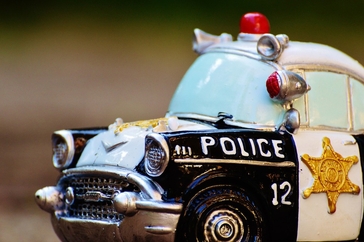
Sure enough, two police cars arrived a few minutes later and four burly policemen exited.
"You're blocking a public sidewalk," one of them was heard to tell the protesters. "Disperse at once or be arrested."
There were a few angry shouts from the protesters and one of them looked as if he was about to swing his sign at one of the police officers, but when he noticed the officer's hand resting on his service revolver holster, he thought better of it.
The protesters kept shouting but they all walked away, likely headed home to get out of the cold themselves. The police officers left without any further incidents taking place.
"What was all that?" Deana asked.
"There was something in the newspaper this morning," Sal said, "but I didn't know it would come to this. I certainly didn't think they would know about our club meetings."
Now that the sidewalk was cleared, a few of the boys started to come into the cafe. Dan and Wayne were first; they mentioned to Sal that they had almost gone back home when they saw the angry group of picketeers, but then when they police arrived they decided to wait it out. Tom and Larry arrived next, followed by Mike and Delmer. They all listened as Sal recapped the newspaper story.
"It seems that these folks are kind of leftovers from the McCarthy days," Sal began. The boys nodded; they certainly recalled the "Red Scare" that had only come to an end a year or so ago.

Sal continued, "Somehow they think the red and white checker pieces are really symbolic of the Red Russians and the White Russians, from back in the days of the Russian Revolution. Obviously the Reds came out on top. What this has to do with checkers is beyond me, but the article goes on to talk about how the group thinks checkers is a Communist plot to distract Americans from our democratic principles, our American work ethic, and so on. They say anyone who plays checkers is a Red, even if they play the white pieces."
The boys all laughed at that, but it was a nervous sort of laughter.
"Unbelievable," Mike said, "and don't they realize most of us served during the war?" (Editor's note: See our previous Veterans' Day story.)
"Shades of Harvey Hopkins," said Dan, referring to a late 19th century Chicago checkerist who said that nighttime baseball caused youth to degenerate, "except it's checkers instead of baseball, and it's Communism instead of crime."
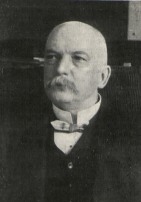
Harvey Hopkins
"No doubt they don't like baseball either," said Delmer, "after all one of the teams is named the Red Sox."
"So what should we do?" said Dan. "The idea of them picketing in front of Deana's cafe isn't a pretty thought."
"Bad for business," Deana said from behind her counter. "I suppose they think cafes are Communist, too, because sometimes I use red food coloring in my baking."
"What's more serious," Sal said, "is their wanting to ban checkers from our schools. We all know that chess and checkers aids mental development, problem solving skills, and a lot more, but this group likely wouldn't agree."
"We need to all show up at that school board hearing next month," Mike said. "We have to make our case about checkers as a force for good rather than whatever they're making it out to be."
"The work of the Commies," said Wayne.
"What about Deana?" Sal asked. "We need to do something for her, too."

Deana's Lawyer
"I appreciate the thought, boys," Deana said, "but there's no need. On Monday I'm getting hold of my lawyer and we'll get a Temporary Restraining Order. One of them shoved Sal and I won't stand for it. I won't have any problem convincing the judge to grant the order. But hey, aren't you boys here for checkers? Come on, get with it; there's blueberry crumble today and we all could use a treat. On the house today." Deana paused a minute. "Although I suppose I should have served Red Rice as a lunch special."

The boys laughed again. "Thanks, Deana!" they said in unison.
"You're right, Deana," said Sal. "Let's not let the hooligans spoil our checker fun. I've got a nice problem for you boys to solve this afternoon, and no one has to worry about paying, thanks to Deana." The tradition was that Sal would show a problem, and if the boys (all of whom but one were at least 50 years old) solved it, Sal would buy treats; if they couldn't solve it, they would buy for Sal and his wife Sylvia.
Sal laid out the following position on one of the checkerboards.
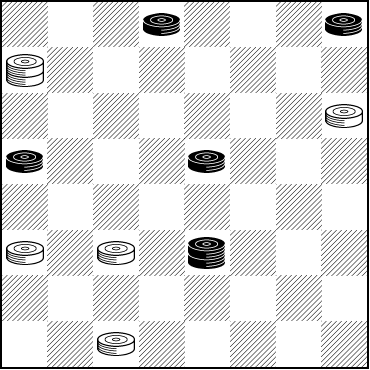
WHITE
White to Play and Draw
W:WK5,12,21,22,30:B2,4,13,15,K23
"We had a bit of a late start," he said, "so how about we keep it to 45 minutes?" But there was no response as the boys were already deep in study.
When the analysis was in full swing, Sal went over to Deana's counter and slipped her a $5 bill. "Nice of you to offer to treat," he said, "but I owe you for calling the police when things could have turned ugly."
"Thanks, Sal," Deana said. She then refilled everyone's coffee and after 45 minutes, Sal called 'time.'
Is anyone claiming checkers has an evil political side where you are? We'd be surprised if that were the case, and we certainly hope never to see such a thing. But we suppose anything is possible.
What should surely be possible is for you to solve today's problem, and we ask you to give it your best try. When you're ready, don't protest; just click your mouse on Read More to see the solution and the brief conclusion to our story. And do note that our diagram shows white and black pieces, not white and red.![]()
Solution and Conclusion
"We got it," Wayne said, "or actually Delmer did. Show Sal, Delmer."
Delmer demonstrated the following play.

WHITE
White to Play and Draw
W:WK5,12,21,22,30:B2,4,13,15,K23
| 1. | 21-17* | ... |
This is the point of the problem, namely to find the initial star move after which play is fairly straightforward. All other possibilities lose.
30-26 or 22-17 or 22-18 or 12-8 simply throw away a piece.
A try which looks feasible is 30-25 but loses after 2-7 5-1 7-11 21-17 11-16 1-6 15-18 22x15 13x29 (variations possible).
5-1 falls to 23-18 30-25 18-14 1-5 15-19 5-1 19-24 1-5 24-27 5-1 27-31 1-5 31-26 5-1 26x17.
Finally 5-9 doesn't work either and loses to 23-18 30-25 18-23 9-14 2-7 14-9 7-11 9-14 11-16 14-9 23-18 9-6 18-14 6-1 16-19 with play continuing as in the previous variation.
The problem composer gives the following as his full solution: 21-17* 23-19 5-9* 15-18 22x15 19x10---1 12-8* 13x22 8-3* to a draw.
1----A little more complex is 13x22 15-11 19-16 11-8! 4x11 9-14 16-19 14-18 to a draw.
The computer shows a different main line which is much more extended. We like the author's solution best and invite you to do your own analysis at home.
"Very nice," Sal said. "It's a fine example of how checkers develops and improves valuable analytical skills."
Checker conversation and skittles games went on until Deana's 5 PM closing time; there was no further discussion of the protesters, although surely the topic wasn't forgotten.
Everyone said their goodbyes and headed out into the cold North Dakota evening. But as Sal walked along Rosser Avenue, he noticed a few people in parked cars, staring at him and a few of the other club members. Then he spied a battered old Nash sedan that seemed to be following slowly behind him. Sal picked up his pace but by the time he turned off onto 13th street, the car was gone.
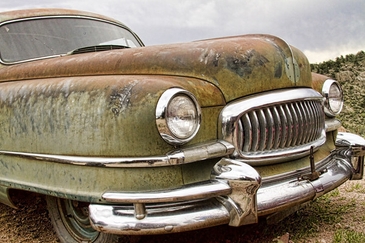
To be continued.
Today's problem is attributed to an old-time player named J. A. Drouillard of Kansas City, Mo. and was published around 1908.
You can email the Webmaster with comments on this article.
